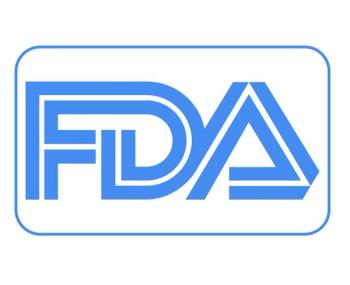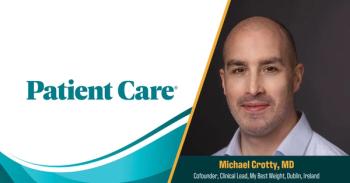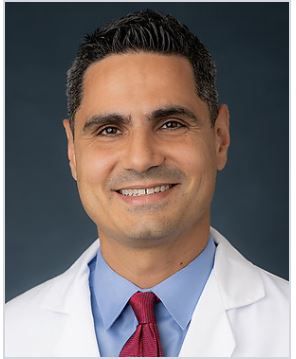
Endocrinology
Latest News

Mathematical Model Forecasts Diabetes Complications 15 Years Out, Confirms Legacy Effect of Early Control

Mazdutide Demonstrates Superior Glycemic Control and Weight Loss vs Semaglutide in Head-to-Head Trial
Latest Videos
CME Content
More News

Early Natural Menopause Associated With Increased Metabolic Syndrome Risk, According to New Research
TMS 2025: Early natural menopause significantly raises the risk of metabolic syndrome, highlighting the need for proactive health interventions in at-risk women.

The first FDA-approved oral GLP-1 receptor agonist received an expanded indication for both primary and secondary prevention in T2D patients at elevated CV risk.

Your daily dose of the clinical news you may have missed.

GLP-1 RAs liraglutide, semaglutide, and dulaglutide showed similar kidney and cardiovascular outcomes more than 20,000 US veterans with type 2 diabetes.

Topline phase 3 data shows oral GLP-1 cuts HbA1c by 2.1% when added to basal insulin, nearly triple placebo's effect in patients poorly controlled on current therapy.

The sBLA includes data from the phase 3 INHALE-1 study, which showed Afrezza noninferior to MDI insulin. A PDUFA date is set for May 29, 2026.

New research reveals GLP-1 receptor agonists may alter PET-CT scan interpretations, highlighting the need for updated guidelines in oncological imaging.

Time in range, glucose variability, and postprandial spikes: Anderson highlights how CGM insights translate quickly into targeted treatment decisions.

The Frist Clinic clinician said that technical difficulty is not impeding CGM uptake in primary care. "The real limitation is they just haven't done it before."

John E Anderson, MD, discusses why primary care lags in CGM adoption despite proven benefits, stressing that it's largely a lack of familiarity and that's easily overcome.

Your daily dose of the clinical news you may have missed.

Novo Nordisk aims to revolutionize diabetes care with its resubmission for insulin icodec, a potential first once-weekly basal insulin for type 2 diabetes therapy in adults.

Your daily dose of the clinical news you may have missed.

Michael Crotty, MD, an expert in obesity medicine, discusses GLP-1RAs in the context of weight loss, including the novel dual agonist survodutide.

Your daily dose of the clinical news you may have missed.

In children aged 10 to <18 with T2D inadequately controlled on standard of care treatment, tirzepatide reduced HbA1c by an average of 2.2% and reduced BMI as well.

EASD 2025. A new oral GLP-1 receptor agonist, orforglipron, shows promise for significant weight loss and improved cardiometabolic health in adults with obesity.

EASD 2025: After initiating treatment with semaglutide, the number of people who reported experiencing constant thoughts about food throughout the day declined by 46%.

EASD 2025: Findings from a subanalysis of the REDEFINE 1 phase 3 trial support Novo Nordisk's plan to advance cagrilintide into a dedicated clinical program this year.

Real-time continuous glucose monitoring significantly enhances glycemic control in gestational diabetes, reducing risks for large newborns compared to traditional methods.

EASD 2025: The risk of developing the 4 primary subtypes of T2D was increased by as much as 3-fold and was not dependent on duration of smoking behavior.

Your daily dose of the clinical news you may have missed.

Approximately Half of People with Diabetes Worldwide Do Not Know They Have the Disease: GBD Analysis
Nor does receiving a diabetes diagnosis guarantee optimal management as just one-fifth of people treated for the disease reached glycemic control in 2023.

At ESC 2025, the STEER study showed semaglutide reduced risk of heart attack, stroke, or death by 57% vs tirzepatide in adults with obesity and cardiovascular disease, complementing prior trial data.

Your daily dose of the clinical news you may have missed.




































































































































